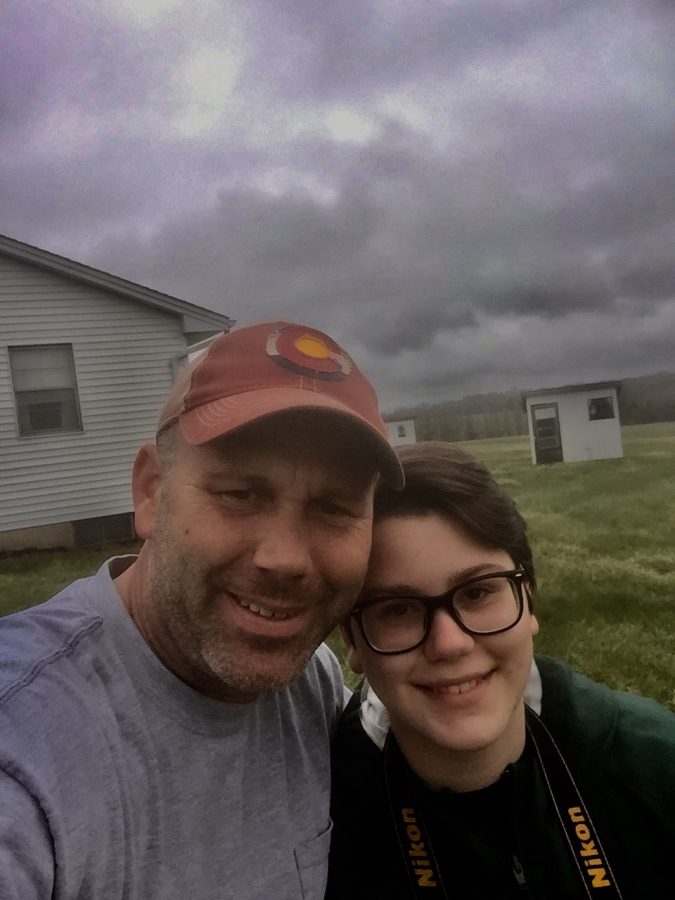Your donation will support the student journalists of Francis Howell North High School. Your contribution will allow us to purchase equipment and cover our annual website hosting costs.
Dealing with Dysautonomia
Published: April 3, 2019
In the heat of July, senior Sydney Wise feels a panic rush over her as she sits on the ground near the practice field for marching band. A few moments prior to her break, she felt a dizzy sensation, but it didn’t happen just that day, it continued to happen for three days before she decided to see a doctor.
“In the beginning was when I felt the most panicked,” Sydney said. “I really only thought it was because I was dehydrated. It freaked me out that I had to sit out everyday. I got in my head about the situation.”
Sydney ended up seeing a cardiologist and they performed an ultrasound on her heart and an EKG, or electrocardiography, which is the process of recording the electrical activity of the heart. They told her that she has a chronic dysfunction in the automatic nervous system called dysautonomia, which is a form from an illness that her dad Kent Wise also suffers from called Postural Orthostatic Tachycardia Syndrome (POTS), which is when someone stands up and their blood pressure drops so their heart rate speeds up. One of the main issues with it is an increase in dizziness.
“Seeing what my dad goes through every day and the thought of what he has to deal with, I just don’t want to go through that,” Sydney said. “I know how much pain he’s in and I know how frustrating it is to not be able to do the things you want to do.”
Kent also carries a chronic illness called Ehler’s-Danlos syndrome, which is a syndrome where connective tissues are missing from joints and muscles. This specifically causes Kent a lot of pain in his torso. Sydney has a 50 percent possibility of carrying as well. She won’t know exactly what she carries until she visits a geneticist. She plans on seeing one later this year.
“I think because I was very physical and being involved in sports, I didn’t notice things,” Kent said. “It took a lot longer for my condition to settle in. Sydney is showing beginning signs.”
Sydney and Kent’s conditions aren’t only affecting them, but it also affects their family and especially Kent’s wife Jen Wise.
“It’s not easy watching this situation go down, and it’s definitely a little stressful,” Jen said. “I’m not the one experiencing dizziness or pain, so it’s totally different for them. I have to redo and rethink a lot of how I do things. The amount of things I have to do is far greater than it used to be. It’s made me have to change things about myself like things I have to give up because I have to take care of things I normally don’t have to. I’m not saying that’s necessarily a bad thing because I’ve found joy [with my children and normal housework].”
For now, Sydney has to drink a around a gallon of water and exercise for 30 minutes a day to help with the dizziness. According to Sydney, some days are better than others, which goes the same for Kent.
“It can be frustrating because I’ll be wanting to do something as simple as driving, but I can’t because I’ll be too dizzy,” Sydney said. “Sometimes I’ll have to miss school. Drinking water helps but there are some days I’ll have to take extra care of myself.”

